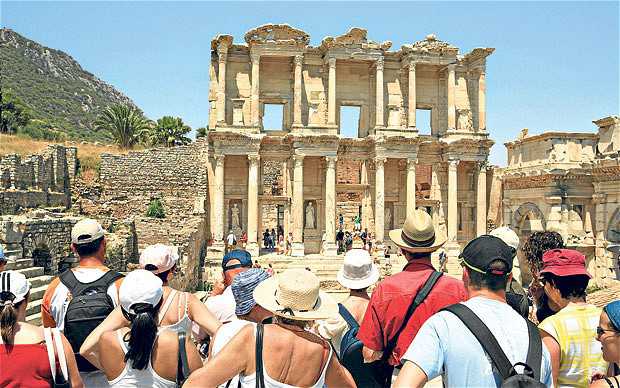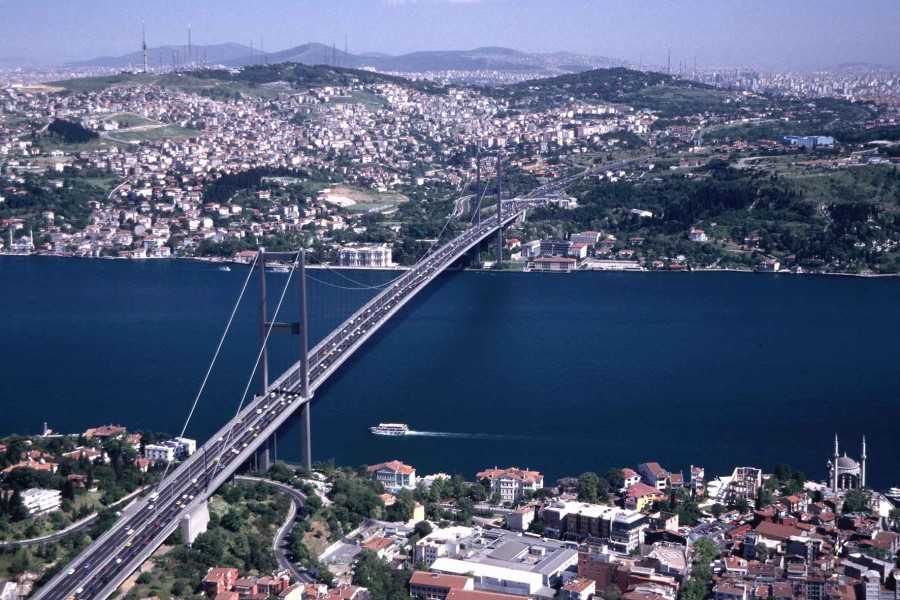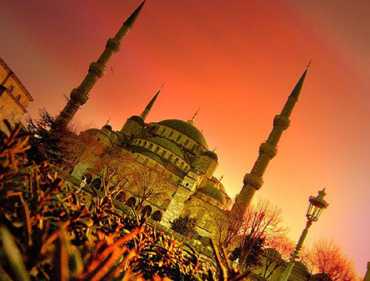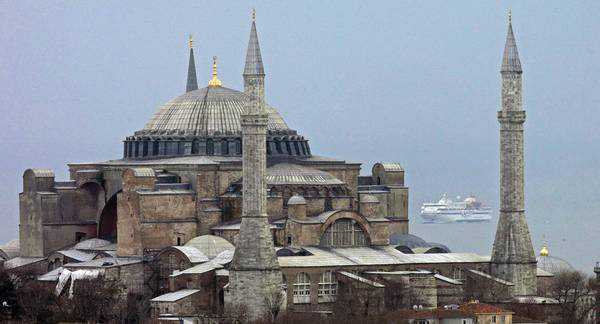MOSCOW. (RIA Novosti commentator Maria Appakova) – This is a difficult time for Turkish Prime Minister Recep Tayyip Erdogan, what with the Constitutional Court considering banning his governing AK Party for alleged anti-secular activities, and bomb attacks in Istanbul killing 17 people hours before the court opened.
More than 70 AKP members, including President Abdullah Gul and Prime Minister Recep Tayyip Erdogan, could be banned from political activities for five years. Most of the leading figures in AKP, including Erdogan, are former members of three earlier Islamist parties that were closed down by the Constitutional Court.
Both the court hearing and the terrorist attacks are a result of Turkey’s attempts to reconcile secularism as advocated by Kemal Ataturk, the founder of modern Turkey, with the religious inclinations of a considerable part of Turkish society.
Similar dynamics are at play in neighboring Middle Eastern countries, where Islamic morals vie with Western-style globalization.
“We have been fighting terrorism for 30-35 years, and we will continue fighting until we win,” Erdogan said when visiting the Gungoren neighborhood in Istanbul, where two explosions killed 17 and wounded over 150 people late on Sunday.
“Today is a day for unity,” the prime minister told hundreds of people who chanted, “Allahu Akbar,” God is Great.
It was the best imaginable support for Erdogan’s ruling Justice and Development Party (AKP), which stands accused of anti-secular activities. Behind the case is the army, a staunch advocate of secularism.
But it will be difficult for the Constitutional Court to ban the ruling party, whose leaders include the prime minister and the president. One could even suspect that the explosions had been staged to strengthen the case for the prosecution.
No one has so far claimed responsibility for the explosions, which have as usual been blamed on the Kurdistan Workers Party (PKK). It is said that the explosives used were similar to those used by Turkish Kurds, but spokesmen for the PKK have denied involvement.
This is strange, for the Kurds are usually quick to announce their involvement in such terrorist attacks. Further doubts about the bomb’s provenance have been raised by the Turkish security services, who say this is the first case they have seen of a double terrorist attack, when the first bomb is exploded to attract more victims – ordinary people, medics and police – for a second explosion.
Such chain explosions are usually staged in the Middle East, particularly Israel, the Turkish law-enforcement agencies say, adding that al-Qaida, which claimed responsibility for a series of terrorist attacks in Istanbul in November 2003, could also be involved in these explosions.
Turkey’s stabilizing role in the region (it has recently become very active in the Middle East, and is even mediating the talks between Israel and Syria and between Iran and the United States) makes it a natural target for al-Qaida. But it may lose that role if the Constitutional Court bans Erdogan’s party.
The country is divided between supporters of the secular regime, mostly the Istanbul elite, and advocates of Islamic tradition, mostly common people in the provinces.
AKP has been a link between them, giving those for whom religion is a way of life a right to honor their traditions. It even allowed women students to wear the hejab (Muslim headscarf) at universities, a step that many secularists see as a direct challenge to Ataturk’s vision. Supporters of the change counter that Erdogan did only what his voters expected of him.
Despite the country’s loyalty to Islamic traditions and the considerable influence of religion on secular life, the Turkish premier has managed to maintain warm relations with the West, notably the European Union and the United States. Washington has even praised Ankara.
Secretary of State Condoleezza Rice said in late June: “Sometimes when I’m asked what might democracy look like in the Middle East, I think it might look like Turkey.”
Turkey is also promoting relations with the EU, although its dream of EU membership is so far only a dream.
If Erdogan were forced to resign and his party pushed into a crisis, it would destroy the fragile balance in the country. The politically moderate prime minister could be replaced with Islamist radicals supported by al-Qaida. This would be bad news not only for Turkey, but also for the many Middle Eastern countries that harbor hopes of moving along Erdogan’s “third path,” combining Islamic and local traditions with European values.
The Turkish prime minister will not necessarily lose his post, because the Constitutional Court might limit AKP’s punishment to a fine. And even if the Justice and Development Party were banned, all AKP members of the Turkish parliament would automatically become independent deputies, and so keep their seats. They would be free to form a new group under a different name.
Only a score of deputies could be banned from political activities for five years, but the party would still have a majority in parliament.
At the worst, Prime Minister Recep Tayyip Erdogan and President Abdullah Gul would lose their posts and the country will have to hold early elections, which the renamed party might win.
AKP won a landslide victory in 2007, taking some 47% of the vote. Latest polls suggest it could easily repeat or even outdo that success, even if Erdogan is temporarily forced out of the limelight.
The generals may lose the case against AKP. But then, the move could be just a warning to Turkish Islamists not to take actions that could undermine the country’s secular principles.
The opinions expressed in this article are the author’s and do not necessarily represent those of RIA Novosti.






